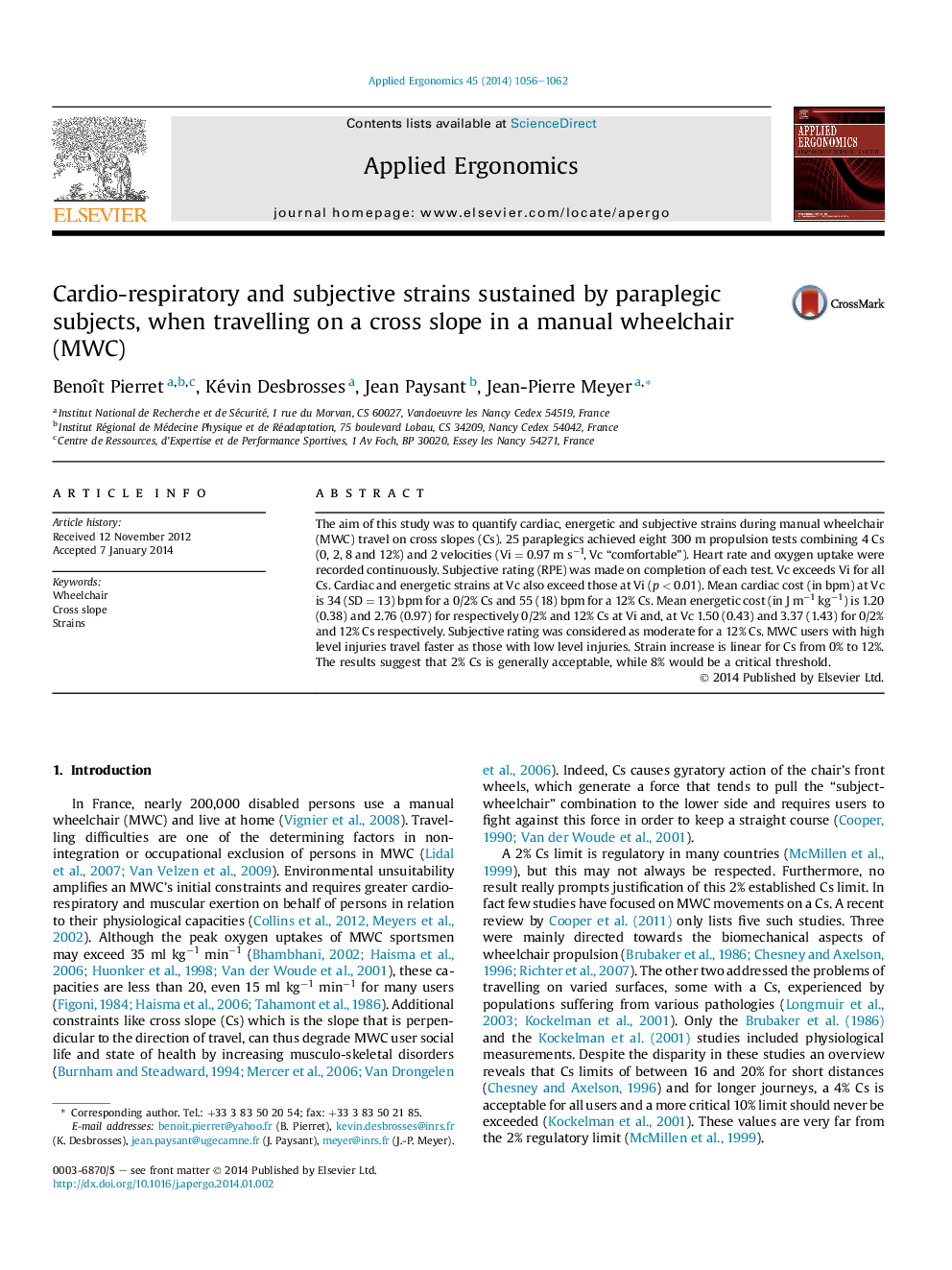| Article ID | Journal | Published Year | Pages | File Type |
|---|---|---|---|---|
| 10365893 | Applied Ergonomics | 2014 | 7 Pages |
Abstract
The aim of this study was to quantify cardiac, energetic and subjective strains during manual wheelchair (MWC) travel on cross slopes (Cs). 25 paraplegics achieved eight 300 m propulsion tests combining 4 Cs (0, 2, 8 and 12%) and 2 velocities (Vi = 0.97 m sâ1, Vc “comfortable”). Heart rate and oxygen uptake were recorded continuously. Subjective rating (RPE) was made on completion of each test. Vc exceeds Vi for all Cs. Cardiac and energetic strains at Vc also exceed those at Vi (p < 0.01). Mean cardiac cost (in bpm) at Vc is 34 (SD = 13) bpm for a 0/2% Cs and 55 (18) bpm for a 12% Cs. Mean energetic cost (in J mâ1 kgâ1) is 1.20 (0.38) and 2.76 (0.97) for respectively 0/2% and 12% Cs at Vi and, at Vc 1.50 (0.43) and 3.37 (1.43) for 0/2% and 12% Cs respectively. Subjective rating was considered as moderate for a 12% Cs. MWC users with high level injuries travel faster as those with low level injuries. Strain increase is linear for Cs from 0% to 12%. The results suggest that 2% Cs is generally acceptable, while 8% would be a critical threshold.
Keywords
Related Topics
Physical Sciences and Engineering
Computer Science
Human-Computer Interaction
Authors
Benoît Pierret, Kévin Desbrosses, Jean Paysant, Jean-Pierre Meyer,
